You’ve bought a bunch of kiwis and aren’t sure where you should put them.
How to store kiwi? Should you refrigerate the pack or let them sit in a fruit bowl on the countertop?
If you’re not quite sure what to do with the kiwifruits you have on hand, you’re in the right place.
In this article, we’ll talk about storage time and practices, and how to tell if your kiwis are still okay to eat.
Sounds interesting? Read on.
Technically, kiwi is a bird, and the fruit we’re talking about is called kiwifruit. But for the sake of simplicity, I’m going to use the term “kiwi” from now on.
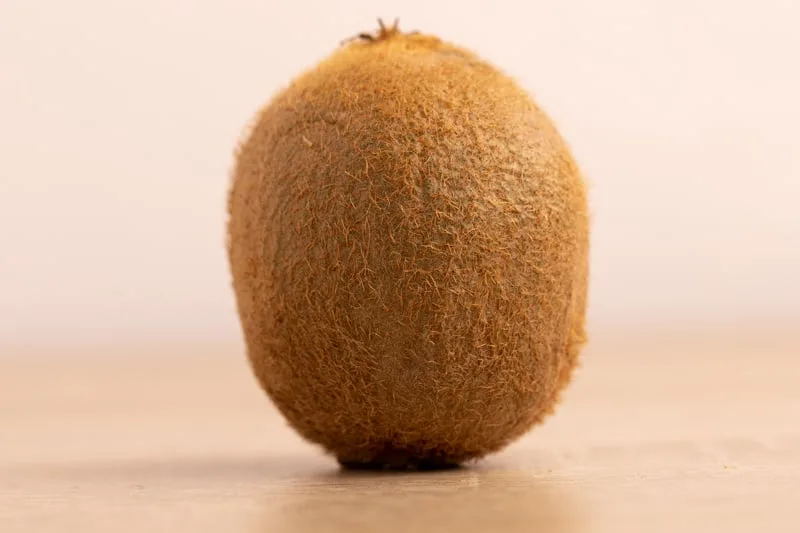
How To Store Kiwi
Unripe kiwi should sit at room temperature until it ripens. Once ripe, keep the fruit in a resealable bag in the fridge.
Peeled or cut up kiwi belongs in an airtight container in the fridge.
Ripening kiwi is quite similar to ripening mango.
As long as the fruit is firm to the touch, it’s not ripe yet. Once it becomes somewhat tender and gives in a little under gentle pressure, it’s ripe and perfect for eating.
You check if kiwi is ripe by grabbing the fruit and gently squeezing it. If it has some give, it’s ripe.
Most often, kiwis that first get to the produce section in the supermarket aren’t ripe yet and ripen there while they wait for you to buy them. Therefore, you need always to check the fruit by hand to learn if they’re already ripe or not.
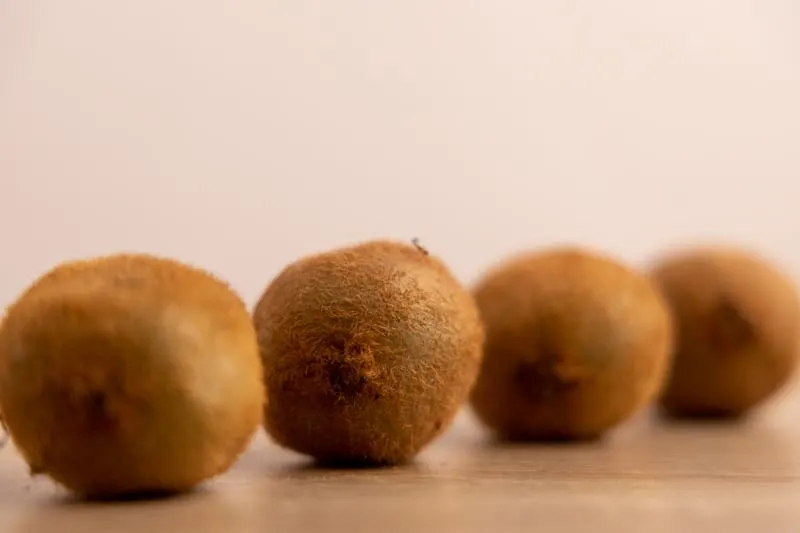
If you want to keep kiwis in storage for a long time, buy ones that aren’t ripe yet.
If you want to speed up the ripening process, put the kiwis next to fruits that produce ethylene gas, e.g., apples, bananas, or pears ([USU]). To accelerate things even further, place all of those fruits in a resealable bag, which will trap the gas.
If you don’t want to ripen the kiwis yet, put them in the fridge for the time being. Transfer them to room temperature when you’re ready to ripen them.
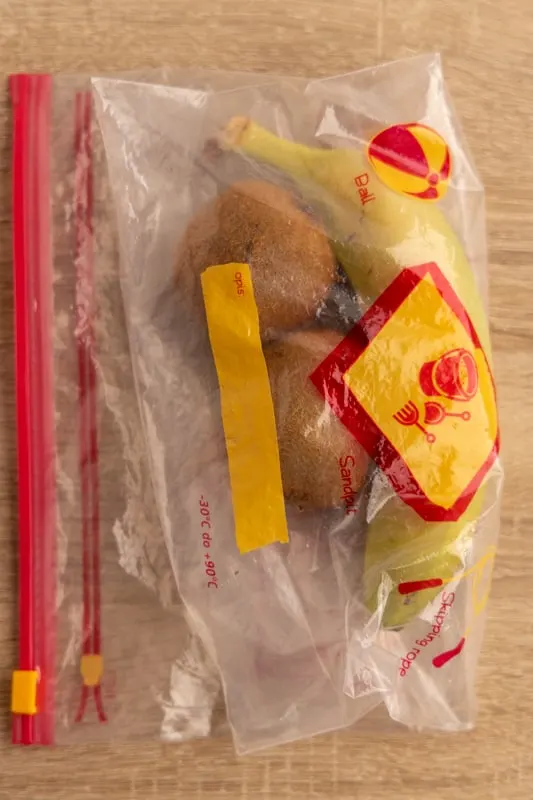
How Long Do Kiwis Last?
Kiwis ripen for about 3 to 5 days at room temperature or 1 to 2 days in a bag with ethylene-producing fruits. Ripe kiwi lasts a few days on the counter or up to about two weeks in the fridge.
Cut-up kiwi keeps for 3 to 4 days in the fridge.
If you need your kiwis to last the full two weeks in the fridge, remember to put them in a resealable bag or container. But if you’re okay with about a week of storage time, feel free to skip the bag.
The bag reduces moisture loss of kiwis, thus extending the storage period.
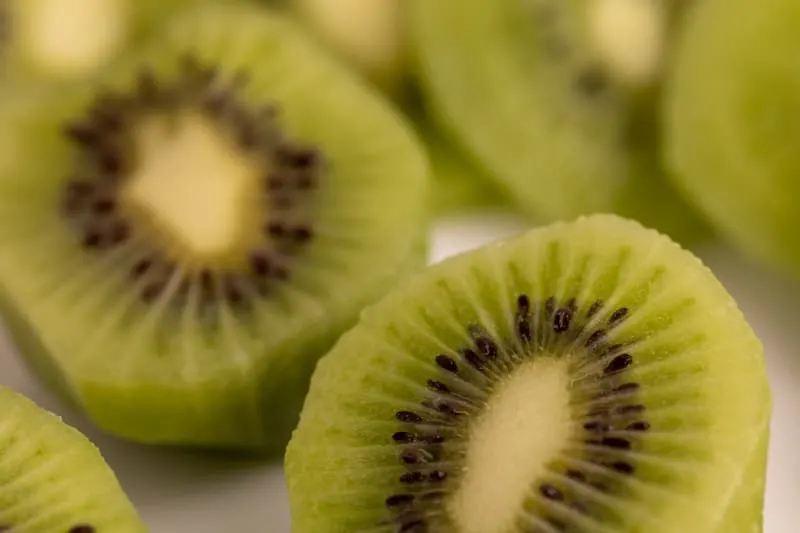
Remember that the storage time depends on the quality of the fruit that you buy.
If you’ve bought your kiwis on a sale and they were already soft to the touch, cut the mentioned storage time in half. They almost certainly won’t last the full two weeks.
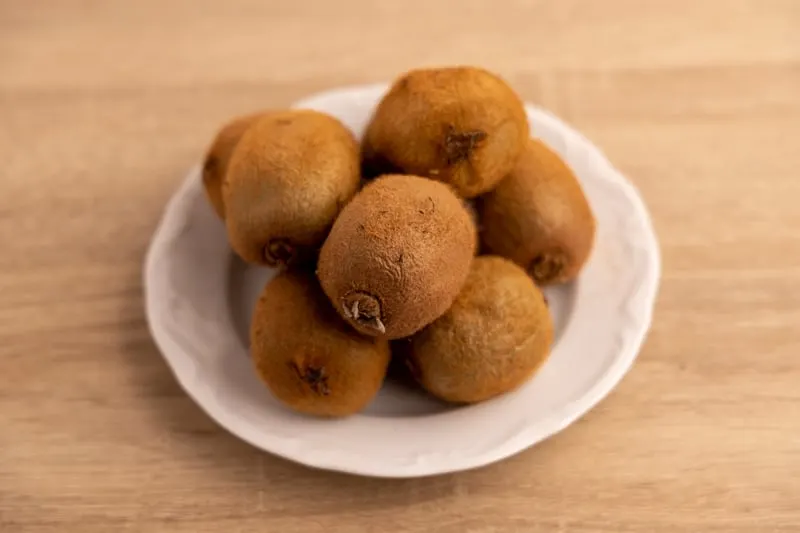
How To Tell If Kiwi Is Bad?
Discard kiwis that:
- Are rotten or moldy. If there are a few dots of mold or a small damaged area on the skin, you can cut those off. But if it gets any more than that, tossing it out is probably the way to go here.
- Are mushy, super soft, or oozing water. If the kiwi gets to this point, it’s time for it to go. Again, you can remove a small sunken spot or a dark area, but that’s about it.
- Sit too long in storage. If your cut-up kiwi is in the fridge for more than 5 or 6 days, it’s got to go. When it comes to whole kiwi, I read that they can sometimes last for up to a month, so your 3-weeks-old kiwi might still be okay to eat.
- Seem off in any other way. If your eyes, nose, or taste buds in your mouth tell you the kiwi is not entirely safe to eat, trust those instincts. They’ve served us pretty well for thousands of years and still do.
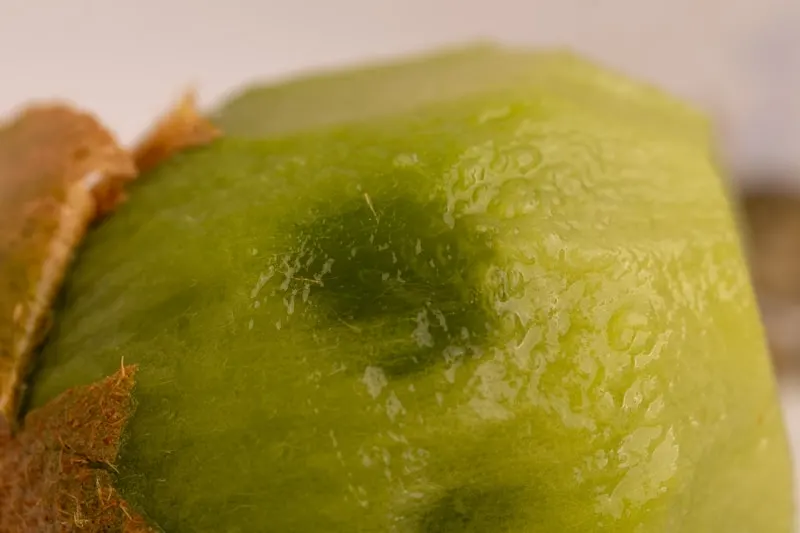
Most of the signs of spoilage I described above depend on the way you approach food quality.
Some might find that softish kiwi okay to eat, while others may find it mushy already. That’s okay. Rely on your judgment and trust your gut in such matters.
You should never feel bad about tossing out food that you don’t think is good o eat anymore. Better safe than sorry.
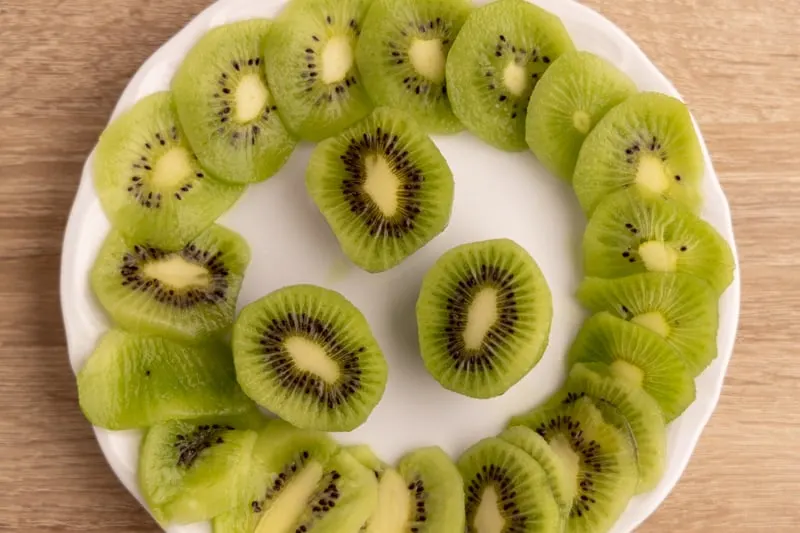
Summary
- Ripen kiwis at room temperature. Once ripe, store them in the fridge.
- You can accelerate ripening by placing kiwis in a freezer bag and putting there an ethylene-producing fruit.
- Kiwis lose their firmness over time. If yours are soft, oozing water, or even moldy, throw them out.